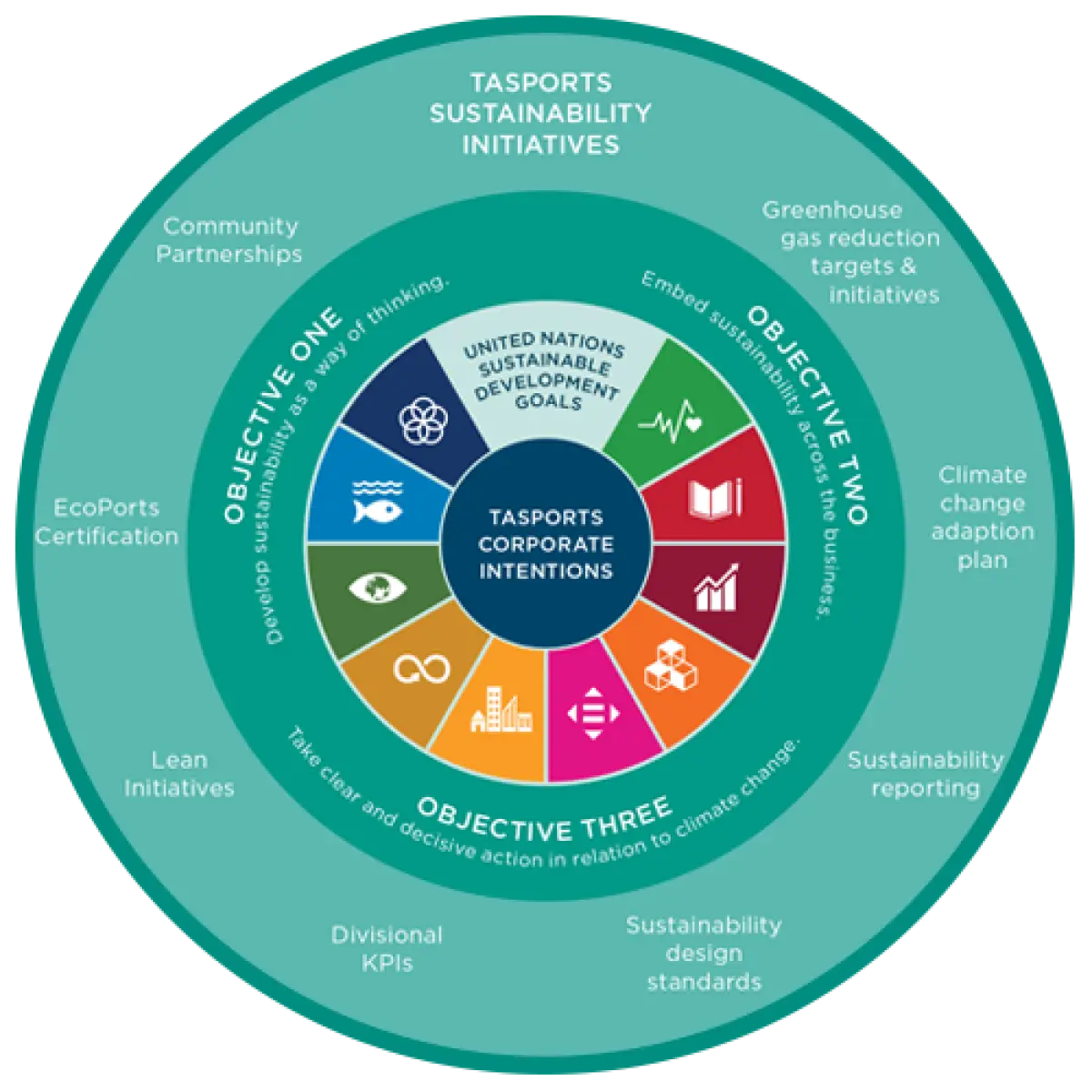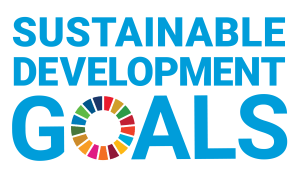Sustainability
A whole of business concept
A whole of business concept
As essential infrastructure nodes that facilitate domestic and international trade, it is critical that ports plan for a sustainable future. To achieve this, ports must drive efficient and resilient outcomes, whilst empowering people and diligently caring for the environments in which they operate.
At TasPorts, we believe sustainability must be considered a whole-of-business concept. It needs to encompass more than environmental concerns, giving equal weight to economic viability and social issues.
The TasPorts Sustainability Policy demonstrates our strong commitment to improved community, economic and environmental outcomes.
The TasPorts Sustainability Strategy focuses on developing sustainability in alignment with relevant United Nations Sustainable Development Goals (SDGs). The SDG platform is globally recognised and supported by the global port industry through the World Port Sustainability Program (WPSP), as launched in 2018.
Central to the Strategy are three key objectives, and a three-year roadmap.

Aligned with Objective three of TasPorts' Sustainability Framework, TasPorts continues to develop its knowledge and resources, so as to take clear and decisive action in relation to climate change.
TasPorts has completed a detailed, whole-of-organisation, second-pass risk assessment to understand the potential impacts of climate changes on operations and infrastructure, safety, customer and supply-chain needs.
The second-pass climate change risk assessments were undertaken using an approach based on global best practice and, Australia's CoastAdapt guidance, and is aligned with international risk standards.
The assessments spanned present day, 2030, 2050 and 2100 timrframes.
The highest risks identified, increasing over time, include the impact of high wind speed on navigation, impacts of wind on occupational health and safety, and impacts on storm tide inundation damage on specific port assets, occupational health and safety and prot operations.
TasPorts will continue to work on quantifying these potential impacts.
The World Ports Sustainability Program aims to demonstrate global leadership of ports in contributing to the Sustainable Development Goals of the United Nations.
The program wants to empower port communities worldwide to engage with business, governmental, and societal stakeholders in creating sustainable added value for the local communities and wider regions in which their ports are embedded.


